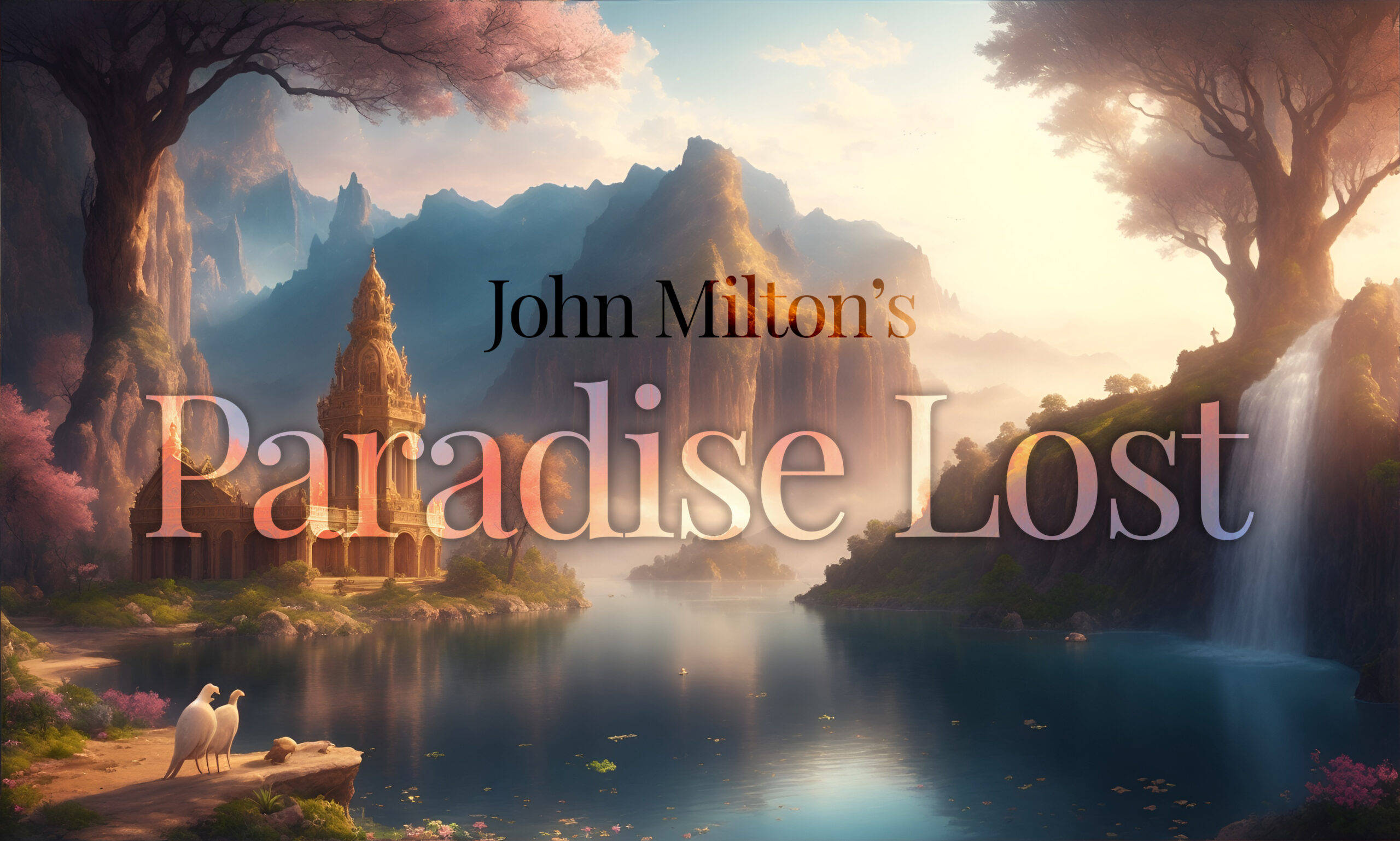
Free Will Versus Predestination in Paradise Lost
Examine the theme of free will versus predestination in Paradise Lost. How does Milton explore the tension between human agency and divine providence? Discuss the arguments presented by the characters and the implications for the fall of humanity.

Free Will Versus Predestination in Paradise Lost
The theme of free will versus predestination is a central and complex issue explored in John Milton‘s epic poem Paradise Lost. Milton grapples with the tension between human agency and divine providence, presenting different arguments through the characters and their interactions. The question of whether human beings possess free will to choose their actions or whether their destinies are predetermined by divine decree has profound implications for the fall of humanity and the ensuing consequences. In this analysis, we will delve into the theme of free will versus predestination in Paradise Lost, examining the arguments presented by the characters and the implications for human existence.
From the outset, Milton establishes the existence of a divine plan and the concept of predestination. In Book III, God reveals to the angel Raphael that He foreknows all events, including the fall of humanity, but He also emphasizes the importance of human agency and free will. God states, “They also will, and if they will, repent” (Book III, line 100). This suggests that humans possess the capacity to choose their actions and exercise their free will, including the ability to repent and seek redemption.
However, the tension between free will and predestination is further explored through the character of Satan. Satan, though a fallen angel, demonstrates a degree of autonomy and free will. He makes deliberate choices and carries out his rebellious plans against God. His determination to defy divine authority and corrupt humanity illustrates the exercise of free will. Satan’s pride and ambition lead him to proclaim, “Better to reign in Hell, than serve in Heaven” (Book I, line 263). He willingly embraces his own damnation, suggesting that his actions are not predetermined but rather driven by his own desires and choices.
While Satan embodies the embodiment of free will, Milton also explores the concept of divine providence. God’s omniscience and foreknowledge imply a predetermined plan for humanity. The fall of Adam and Eve, for instance, is foreseen by God and becomes an integral part of His divine plan for redemption. God declares, “Their fall, though but by dire necessity, / Was from above, not from below” (Book III, lines 128-129). This suggests that the fall is not a result of chance or human autonomy alone but rather a part of God’s larger design.
Milton further explores the tension between free will and predestination through the character of Adam. Adam is portrayed as a morally upright and rational being who possesses free will and the capacity for choice. He is granted the freedom to rule over the creatures of the earth and is placed in the Garden of Eden with the command not to eat from the Tree of Knowledge. Despite his free will, Adam ultimately succumbs to temptation and eats the forbidden fruit, leading to the fall of humanity.
Adam’s choice to eat the fruit raises profound questions about the nature of free will and its limitations. Milton suggests that while humans have the capacity to make choices, they are not entirely free from the influence of external factors, such as temptation and manipulation. Adam’s susceptibility to Satan’s persuasive rhetoric and Eve’s influence complicates the idea of free will as an absolute power. Milton presents the fall as a result of human vulnerability and the limitations of free will when confronted with deception and temptation.
Milton also introduces the concept of foreknowledge as a means of reconciling free will and predestination. In Book XII, the angel Michael reveals to Adam the future of humanity, including the life of Christ and the possibility of salvation. This revelation implies that God’s foreknowledge does not negate human agency but rather encompasses the choices individuals will make. It suggests that while God knows the outcome of events, including the fall of humanity, He does not interfere with human free will.
Through the discussions and arguments presented by the characters, Milton explores the theological and philosophical implications of free will and predestination. The tension between human agency and divine providence raises fundamental questions about the nature of God’s justice, human responsibility, and the limits of human autonomy.
Milton’s exploration of free will versus predestination in Paradise Lost has significant implications for human existence and the fall of humanity. The fall serves as a cautionary tale about the consequences of misusing free will and succumbing to temptation. It highlights the capacity of human beings to make choices and bear the responsibility for their actions. While the fall of humanity may be seen as part of God’s larger plan for redemption, it also underscores the importance of human agency and the necessity for individuals to exercise their free will responsibly.
In conclusion, the theme of free will versus predestination is a central and thought-provoking aspect of Paradise Lost. Milton presents arguments through the characters of Satan and Adam, highlighting the tensions between human agency and divine providence. The exercise of free will is shown through Satan’s rebellion and Adam’s choice to eat the forbidden fruit, while the concept of predestination is exemplified by God’s foreknowledge and His larger plan for redemption. The poem engages with profound questions about the nature of human autonomy, the limits of free will, and the role of divine providence in human existence. By exploring these themes, Milton encourages readers to reflect on the complexities of human choice, the consequences of actions, and the interplay between free will and divine sovereignty.
*****
Read More: Questions and Answers from Paradise Lost by John Milton
Written by Koushik Kumar Kundu
Koushik Kumar Kundu was among the toppers when he completed his Masters from Vidyasagar University after completing his Bachelors degree with Honours in English Literature from The University of Burdwan. He also completed B.Ed from the University of Burdwan.



Comments
No Comments Yet